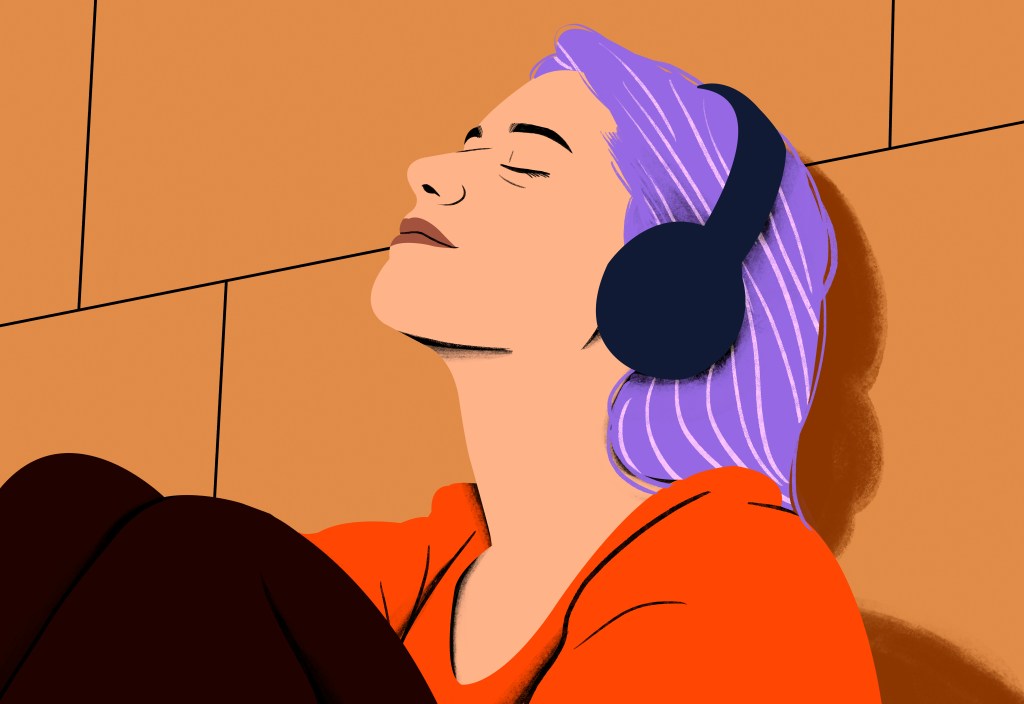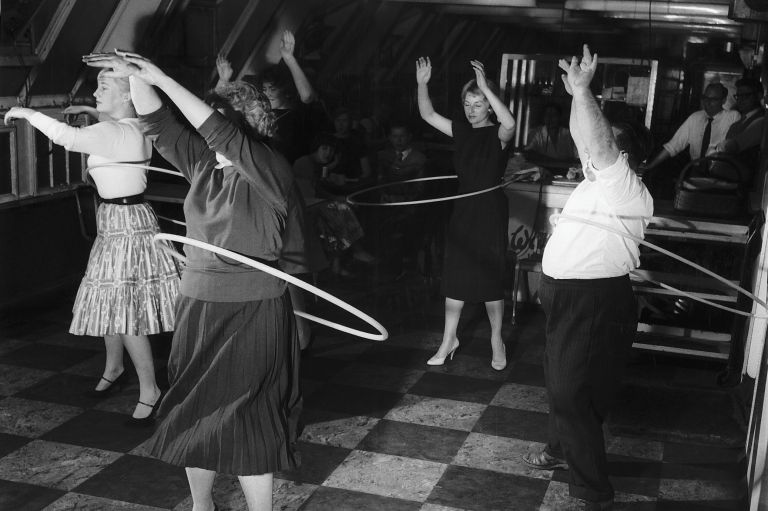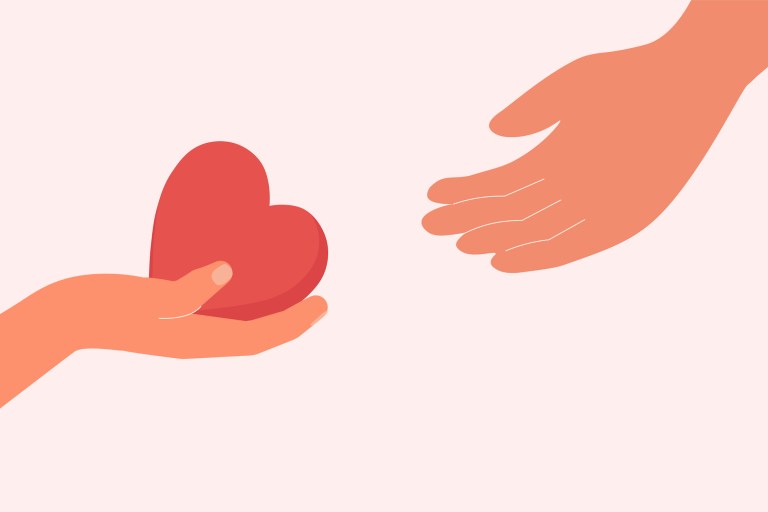Do you cry during Disney movies? Does the thought of going to a concert sound more overwhelming than fun? If so, you might be a sensitive person (and to be fair, Bambi’s mother’s death is devastating every time). But answer “yes” to enough questions like these, and you may instead be what some psychologists refer to as a Highly Sensitive Person, or HSP.
The concept is nothing new — in fact, while the term was coined in 1990 by psychologist Elaine Aron, its roots go all the way back to the Victorian era. And it’s had a resurgence in the modern-day cultural zeitgeist, with influencers like @itsnadialouise proclaiming the designation has helped them appreciate their ability to feel emotions intensely. “What a gift it is to see beauty in everything that it moves you so deeply,” the content creator says in a TikTok video.
So if you’ve always felt that you’re just a bit more in tune with (and more expressive of) your emotions than those around you, read on to discover what it really means to be an HSP and how to give yourself a little extra TLC if you are one.

Are You a Highly Sensitive Person?
Being an HSP doesn’t mean you have a specific condition or disorder — it’s simply a personality trait. According to Aron’s theory, HSPs score higher in “sensory-processing sensitivity,” or SPS. “Those with high levels of SPS display increased emotional sensitivity, stronger reactivity to both external and internal stimuli — pain, hunger, light, and noise — and a complex inner life,” per Psychology Today.
There is some debate as to whether highly sensitive people can be classified as neurodivergent, with those in favor reasoning that HSPs process information differently than most. But while it may seem like you’re different from everyone around you if you’re an HSP, the trait is more common than you may think: Aron’s research suggests that 30% of the population qualifies.
And though the phrase “highly sensitive person” might lead you to believe being an HSP only means you feel everything more intensely, Aron says those with this trait also think more deeply: “What I discovered after many years of studying this innate survival strategy is that high sensitivity means, above all, thinking deeply about everything,” she wrote for Aeon, adding, “Having nearly automatic empathy — almost too much sometimes — we cry easily. We notice subtleties: birds, flowers, the lighting in a room, and if someone has rearranged the furniture. With all that going on in a sensitive person’s brain, we are easily overstimulated.”
If you identify with a few other examples she listed — avoiding noisy restaurants, wearing noise-cancelling headphones on planes, and feeling exhausted after giving a speech to a crowd — it’s possible you’re an HSP. Aron corralled all of these situations into four main categories that make up the acronym DOES: “Depth of processing, Overarousability, Emotionally responsive and Empathic, and sensitive to Subtle stimuli.”
Still unsure if you fall under this umbrella? This three-minute test may be able to help you figure it out, or you can take Aron’s own online quiz.
How HSPs Navigate the World
There’s no doubt that being an HSP comes with its share of challenges — but also many beautiful upsides. Per Psychology Today, the trait may be linked to higher levels of creativity, a deeper appreciation for beauty, and more meaningful relationships.
And as we alluded to earlier, HSPs have compassion in spades. One small study suggested that being highly sensitive is associated with increased empathy and awareness, while another indicated that these folks — while more easily stressed — make more empathetic colleagues.

According to Aron’s research, HSPs aren’t necessarily introverted or neurotic, two traits previously thought to be associated with high sensitivity. Instead, per her essay in Aeon, “depth of processing” is the most important part of SPS. “In short, if you want to process information more thoroughly, it helps to have feelings about it — and this power is built into HSPs,” she wrote.
These folks may also be able to tune in to positive experiences more adeptly than their peers, and have “greater attentional control, superior memory consolidation, and the ability to think slowly and carefully, aiding decision-making and planning,” Aron noted, adding, “They appear to be better at seeing things ‘as they really are.’”
The fact that HSPs possess these qualities aligns with the theory that high sensitivity originally developed as a survival strategy — which, according to a 2018 study, facilitates caring for others and avoiding threats. “In humans, this innate survival strategy involves noticing and adapting to details in the environment, especially the social environment,” Aron explained in her essay. “Those with this trait are carefully observing and processing what they take in, consciously or not, and maximizing what they have learned.”
How to Care for Yourself as an HSP
With all the time HSPs spend thinking, feeling, and observing, it makes sense that they may be more likely to experience stress and illness. While nothing can replicate seeking help from a qualified professional, we rounded up a few tips to help you take care of yourself as an HSP.
- Step away from overwhelming situations: Whether it’s from another person’s emotions or a hectic situation, it’s easy to feel overloaded — so it’s essential to set boundaries and take space for yourself. “Remember that your needs are important too!” licensed clinical psychologist Amy Marschall told Verywell Mind. “Many HSPs tend to push down their own emotions because other people’s emotions overwhelm them. Your feelings matter too.”
- Create a safe space: When you do carve out time for yourself, make sure you have a safe space ready and waiting. Turn your home into a relaxing environment, which could mean playing calming music, lighting a scented candle, or trying out a stress-relieving activity. (Maybe even hop on the “cozymaxxing” trend that’s sweeping social media.)
- Go outside: From technology to street noises, our world is full of stimuli. But taking a break from all the chaos and enjoying some time outdoors — hiking, swimming, or just soaking up some fresh air on a casual stroll — can provide a much-needed respite. “HSPs benefit immensely from the grounding and healing power of nature,” clinical psychologist Carla Marie Manly told Well+Good.
So if you suspect you’re an HSP (or already know that you are), there’s no need to shy away from your deep sensitivity — it’s all about learning to keep your cup full so that your empathetic, attentive, creative nature can shine bright.
RELATED: Try These 7 Brain-Soothing Tips When Anxiety Hits












